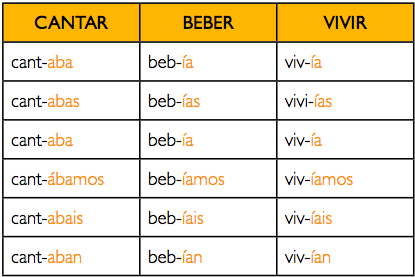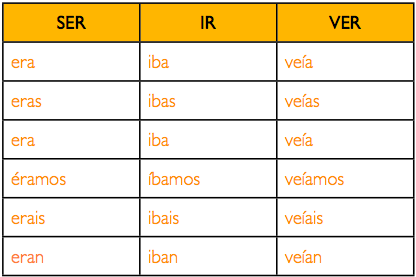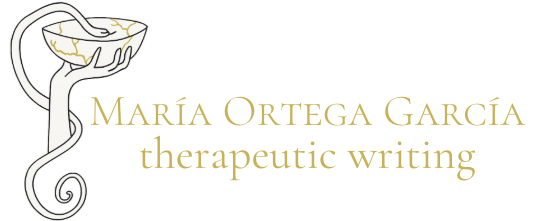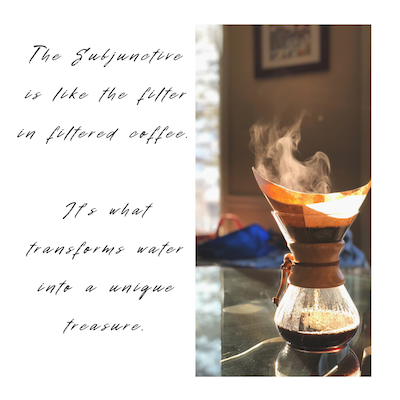The Imperfect – Pretérito Imperfecto – is used to talk about the past in Spanish. In the majority of situations, when we use the imperfecto is not to give the main information but to give the context that surrounds the main information.
- El pasado fin de semana estuve tomando el sol en la playa, hacía mucho calor y brillaba el sol.
– Last weekend I was sunbathing on the beach, it was very warm and the sun shone.
The main information is that I was sunbathing on the beach and the secondary information, the context of the situation, is that the weather was warm and sunny.
Form
To conjugate a regular verb in the imperfect you just need to drop the ending -ar, -er, or -ir from the infinitive form and add the endings.


There are only 3 irregular imperfect verbs forms, “ser” (to be), “ir” (to go) and “ver” (to see).
Use
The main use of the imperfecto is for describing things, people, animals or situations in the past:
- Describe qualities, characteristics or attributes.
- Describe habitual actions in the past. It’s the equivalent of “used to…“
- Describe specific situations in the past.
Examples:
1. qualities, characteristics or attributes.
- Mi casa era pequeña y oscura.
– Mi house was small and dark. - Mi padre era rubio y llevaba bigote.
– Mi father was blond and wore a moustache.
2. habitual actions in the past
- Iba a la piscina todas las mañanas el año pasado.
– I used to go to swimming pool every morning last year. - Cuando era joven podía tocarme los dedos de los pies con la mano.
– When I was young I could touch my toes with my fingers.
3. specific situations in the past
- Estaba en casa de mi novio y comimos una pizza.
– I was at my boyfriend’s house and we ate a pizza.
- We also use the imperfect for actions happening in the past that are not seen as completed (the past action did not have a definite beginning or end).
- Cuando estudiaba en la universidad, salía de fiesta todas las noches.
– When I studied in college, I went out partying every night. - Hacía mucho frío y llovía a menudo.
– It was very cold and it rained often.
- It’s used to tell the time and stating one’s age.
- Eran las 3 de la tarde cuando sonó el teléfono.
– It was 3 o’clock in the afternoon when the telephone rang. - Tenía 25 años aquel verano.
– I was 25 that summer.
When we want to tell a story we can combine the imperfecto and the indefinido.
- Era de noche y la calle estaba vacía. Yo volvía a casa sola cuando oí que alguien me llamaba. Me di la vuelta y no vi a nadie. Estaba muy asustada, así que eché a correr.
– It was dark and the street was empty. I was coming back home when I heard someone calling my name. I turned around and I didn’t see anybody. I was very scared so I started running.
Timer markers used with the imperfecto:
a veces
de vez en cuando
cada mes/año
todas las semanas
normalmente
siempre
antes
muchas veces
cada día/semana
todos los días
generalmente
nunca
a menudo
frecuentemente
cada verano
en aquellos días
mucho
de joven







One thought on “Describe in the past (Imperfecto de Indicativo)”